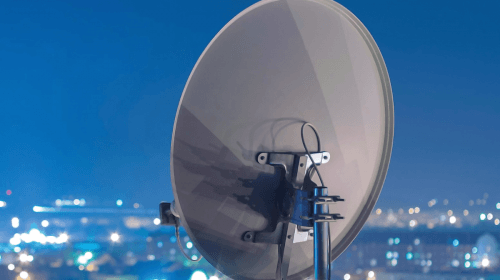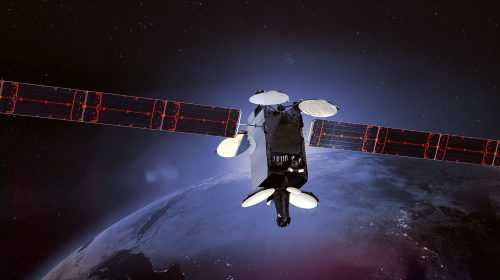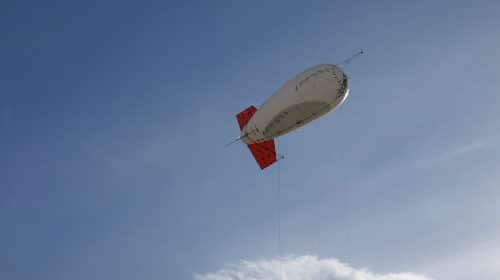Satellite Heavyweights Eutelsat and OneWeb Join Forces in Megamerger
Sep 28, 2023
After securing shareholder approval on September 28th, Eutelsat has officially merged with OneWeb to unite their geostationary (GEO) and low Earth orbit (LEO) satellite operations. The deal, valued at $3.4 billion when announced last year, combines Eutelsat’s longstanding GEO broadband services with OneWeb’s recently deployed global LEO constellation.
 Eutelsat HQ. Credit: Eutelsat
Eutelsat HQ. Credit: Eutelsat
The merger creates a new space connectivity giant offering both high throughput GEO capacity and low latency LEO coverage. Shareholders holding 49.4% of Eutelsat had already voiced support for the transaction, with the final vote clearing the two-thirds threshold needed for approval. The percentage of shareholders greenlighting the deal has not yet been published.
OneWeb shareholders had previously signed off on the merger, which also received all necessary regulatory clearances on August 10th. OneWeb completed the deployment of its constellation earlier this year and currently has 634 satellites LEO as it prepares to offer services globally before the end of 2023. With the merger now complete, Eutelsat and OneWeb can proceed with joint development of a next-generation LEO system. The planned Gen 2 constellation will enhance capacity and coverage when it enters service in early 2028.
The merger of Eutelsat and OneWeb has formed the sole operator with both geostationary and low Earth orbit satellites, remarked Eva Berneke, Eutelsat’s CEO. She stated this hybrid network is pivotal to fulfilling the surging global demand for connectivity.
“We can address a wider range of customer requirements and provide hybrid connectivity services where they are required worldwide,” Berneke said. “Eutelsat and OneWeb’s combined scale, finances, and business model empower us to capitalize on the immense growth opportunities.”
The companies aim to start capitalizing on revenue synergies by 2023, including upselling and cross-selling across GEO and LEO customer bases. Their combined resources can boost innovation in ground infrastructure, terminals, and other technologies. Analysts project the merger creating a new satellite leader generating over $1.2 billion in annual revenues. The expanded geographic reach and combined GEO/LEO portfolio offer solutions tailored for key verticals like maritime, aviation, government, and mobile backhaul.
Yet the landscape is intensifying with competitors like Viasat. Viasat’s recent $6.2 billion acquisition of Inmarsat also signals further consolidation amongst satellite players.
Eutelsat brings its strong broadcast and data services business in Europe, the Middle East, and Africa to the table. Meanwhile, OneWeb offers low-latency services capable of rivaling terrestrial fiber. Their combined platform covers a wide spectrum of customer needs.
By merging LEO and GEO assets, Eutelsat and OneWeb can provide holistic solutions. For example, GEO capacity can serve high-density areas with heavy traffic demands, while LEO blankets hard-to-reach zones. Tailoring the network architecture to usage and geography optimizes efficiency. Their roadmap also envisions advanced hybrid terminals to seamlessly roam traffic across GEO and LEO networks. This next-generation adaptive technology promises to unlock the full potential of a multi-orbit fleet.
As satellite broadband demand accelerates across consumer, mobility, and government segments, the lines are blurring between LEO and GEO. By combining forces, Eutelsat and OneWeb gain economies of scale and complementary assets to vie for leadership in tomorrow’s space connectivity ecosystem.





